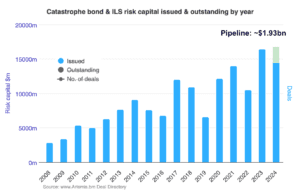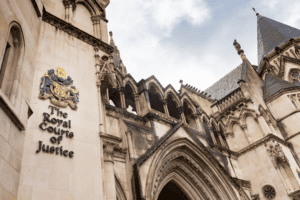Thousands of flood claims lodged in Victoria

Insurers have received 5193 claims since October 12 from flooding across Victoria, Tasmania and lower NSW, which inundated homes and businesses in many riverside communities.
Towns such as Seymour, Rochester and Shepparton were submerged, the Goulburn River rose above 12 metres for the first time in decades and Echuca is under evacuation orders as the Murray River is expected to peak in coming hours.
The Insurance Council of Australia (ICA) has categorised the floods a “significant event”, and says today’s claims figure is up 38% from Monday. About 87% were lodged in Victoria.
IAG, which distributes personal lines in Victoria through a joint venture under the RACV Insurance brand, said today it has received 1470 related claims, the majority from Victoria’s Rochester, Seymour, Maribyrnong, Nagambie and Heathcote.
The Bureau of Meteorology says current dry conditions will be “short-lived”, as widespread rain and storms are forecast across eastern Australia later this week. Heavy rainfall leading to flash flooding was the main risk, and damaging winds and large hail are also possible.
Bureau Senior Meteorologist Michael Efron told media today there were still five major flood warnings and waters were receding very slowly.
Localised heavy rainfall of up to 50 millimetres was possible in coming days, with wet weather extending to all parts of the state – particularly across northeast Victoria – on Friday.
“So a further 5-15mm across the state on Friday, but the northeast could see up to 50mm, in particular with thunderstorm activity, and then heading into the weekend, once again further showers and storms across eastern parts of the state,” he said.
On Sunday into Monday, another low-pressure system is expected to develop over the southeast of Australia, bringing a broader rain and thunderstorm event.
“We are still in La Nina,” Mr Efron said. “We’re not expecting those events to break down until late spring into the early part of summer. So still some time before we see these conditions easing.”
IAG expects claims numbers to rise over the coming week as floodwaters recede and people in high impacted regions return to their homes.
“It could take some days for high impacted towns and areas to become accessible,” IAG EGM Direct Claims Luke Gallagher said.
Suncorp says it has received around 1000 claims so far as a result of the widespread rain and flooding, mostly lodged in Victoria where almost 15,000 people have applied to the government for emergency relief payments.
“The numbers are expected to increase over the coming days as the situation continues to unfold,” Suncorp said.
Victorian Premier Daniel Andrews said some river heights were still rising and 400 Australian Defence Force personnel and Chinook helicopters are assisting.
“There is more rain on its way by the end of the week, particularly for northern Victoria, and that will see renewed water rising and flooding.”
“For the broader Victorian community, this is far from over, we are going to see more rain. We’ve still got many thousands of people whose homes are full of water and others who can’t go back because they’ve left and then are cut off from their home.
“There are still some very serious challenges for us to rise to over these coming days.”
Premier Andrews said 81 schools, 59 early childhood facilities and 384 roads remain closed as a result of flooding, and 25,000 potholes have been repaired.
“This is emergency flood repair to try and get key access routes for freight and emergency services open as fast as possible,” he said.
In NSW, there has been major flooding at the Barwon and Darling, Macquarie, Bogan, Lachlan and Murrumbidgee rivers, and at Forbes, Tilpa and Warren. October rainfall records have been set in inland parts of the state, including Broken Hill, and 2022 is Sydney’s wettest year on record.
The Albanese government’s Disaster Recovery Allowance has been granted to 23 Local Government Areas (LGAs) in Victoria, 17 in Tasmania and four in NSW.





